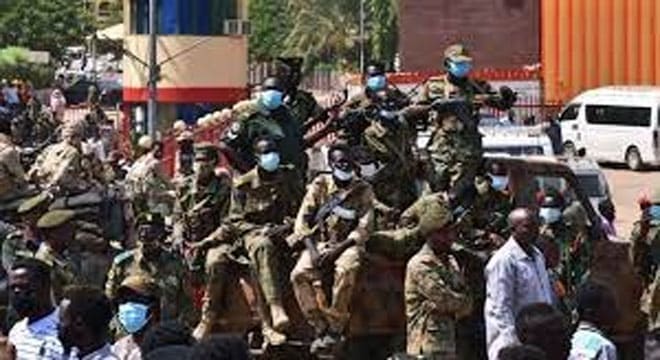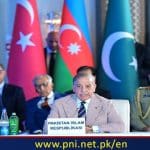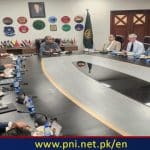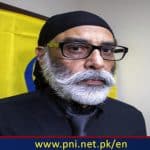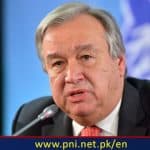Khartoum, Oct 27 (AFP/APP):Sudanese security forces Wednesday made sweeping arrests of protesters who kept up demonstrations in the capital and other cities against this week’s military coup, while the international community ramped up punitive measures.
The World Bank froze aid and the African Union suspended Sudan over Monday’s power grab by the army, just over two years into what is meant to be a transition to civilian rule after the April 2019 ouster of autocrat Omar al-Bashir.
Hundreds of protesters were seen throwing rocks at security forces dismantling street barricades in Khartoum’s eastern district of Burri, according to an AFP correspondent, while in the capital’s north security personnel fired tear gas and rubber bullets at dozens of protesters.
“Police forces have removed all the barricades since Wednesday morning and arrested all the people who stood near them,” said Hady Bashir, a protester, after AFP correspondents saw security forces clear rocks and tyres blocking major streets.
Beyond the capital, protesters have stood their ground to decry the country’s latest military coup, setting up blockades in Port Sudan in the east, Wad Madani to the south, and Atbara to the north.
– International pressure –
Top General Abdel Fattah al-Burhan’s dissolution of the government and declaration of a state of emergency on Monday has provoked strong reactions far beyond the country’s borders.
On Wednesday, the AU called the coup “unconstitutional” and suspended the country’s membership of the bloc.
The World Bank later suspended aid, in a major blow to a country that only unlocked funds from the lender and its sister institution the IMF earlier this year, after decades in the international financial wilderness under Bashir.
The US meanwhile has paused $700 million in funding and the European Union has threatened to follow suit.
EU foreign policy chief Josep Borrell said Wednesday he spoke with deposed Prime Minister Abdalla Hamdok and reiterated support for a civilian-led transition.
“Everything else is betrayal of aspirations of the people who led the revolution two years ago,” Borrell said in a tweet.
Hamdok was detained by the military in sweeping arrests of civilian leaders on Monday, but was allowed home on Tuesday amid a volley of calls for his liberation by major donors.
But the prime minister and his wife remained “under close surveillance,” his office said, while other ministers and civilian leaders remain under full military arrest.
In a joint statement, Western diplomats called for an urgent face-to-face meeting with Hamdok and a joint statement by the US, UK, other nations and the EU emphasised their continued recognition of the “prime minister and his cabinet as the constitutional leaders of the transitional government”.
But the UN Security Council struggled on Wednesday to agree a joint statement on Sudan’s crisis, with Russia opposing a strong condemnation of the military’s power grab, according to diplomats.
– ‘Vengeful’ attacks –
The coup comes amid a rocky transition that began with an August 2019 power-sharing deal between the military and civilians — a precarious arrangement from the outset, subsequently beset by the global coronavirus downturn, a collapsing local currency and rampant inflation.
The coup was the latest in a succession that have hit the underdeveloped nation, which has experienced only rare democratic interludes since independence in 1956.
Burhan has been Sudan’s de facto head of state since Bashir’s ouster, but was also a senior general during the autocrat’s three-decade long hardline rule.
Bashir has been jailed since his ouster and convicted of corruption. He is separately on trial for the 1989 Islamist-backed coup which brought him to power, and is wanted by the International Criminal Court on charges of genocide in the civil war in Darfur.
Tensions had long simmered between the civilian and military camps within the post-Bashir transition, which has lately seen a splinter group of the civilian side align with the military.
Four people were killed and scores wounded on Monday when soldiers opened fire on protesters, according to an independent doctors’ union.
Violence against protesters has mounted in a “vengeful” crackdown by security forces, according to the Sudanese Professionals Association (SPA), an umbrella of unions instrumental in the anti-Bashir protests.
Internet services have largely been blocked and civil aviation authorities said Khartoum airport, which has been closed to flights, reopened Wednesday but it was not immediately clear if any airline scheduled flights to Sudan.
Shops have remained closed following calls for a campaign of civil disobedience, and pro-democracy movements ratcheted up calls for “million-strong protests” on Saturday.
Follow the PNI Facebook page for the latest news and updates.


